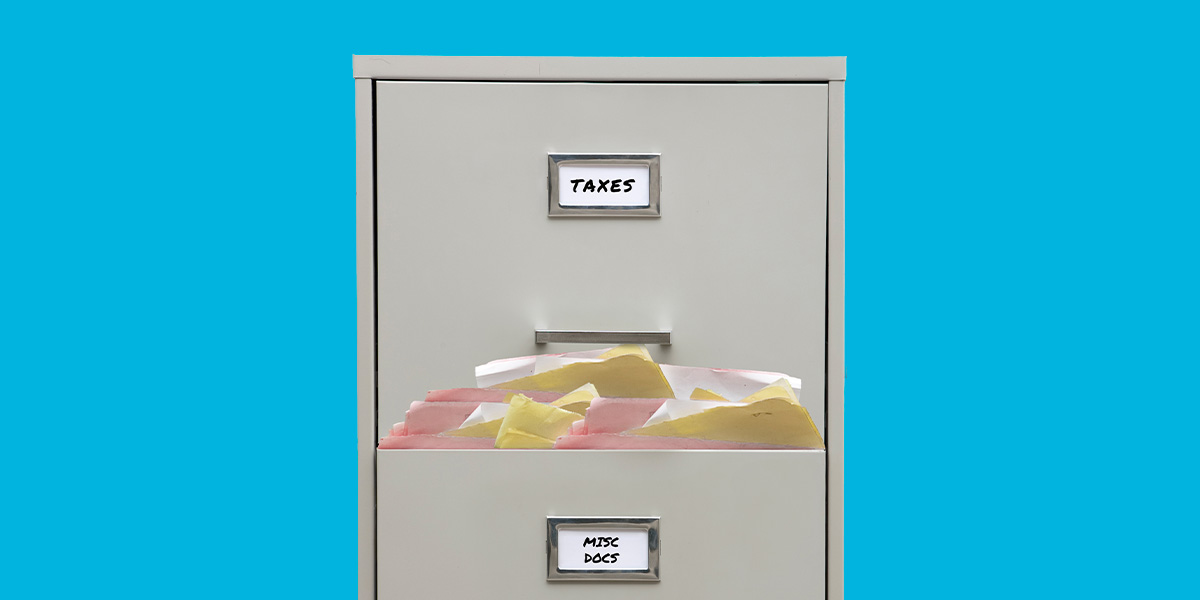-
Personal Banking -
Insights
Should I Convert My 401K or IRA to a Roth?
There is no doubt that the right retirement income strategy for you might not work for someone else. This is why many people implement a variety of strategies, especially as they are undertaking retirement planning in uncertain times.
One of the strategies that may play an important role for many is a Roth IRA conversion. A Roth conversion occurs when funds are distributed from a traditional IRA or 401(k) retirement account into a Roth IRA account.
A traditional IRA is tax-deferred, meaning you do not pay income taxes on the IRA assets until you take a distribution from the IRA, typically during retirement.
In order to convert an IRA into a Roth IRA, you must first take a taxable distribution from the IRA. The Roth IRA will be funded with the IRA distribution, and you will receive a Form 1099 in the amount of the conversion that will be included in your taxable income for that year.
In order for the Roth IRA to then qualify for tax-free status, you must hold the assets in the Roth IRA for five years, after conversion. When the five-year period concludes, the Roth IRA fully qualifies for tax-free treatment.
Why Consider a Roth IRA Conversion?
One of the main reasons why people consider a Roth IRA conversion is to take advantage of the future tax benefits provided by a Roth IRA, but it is important to note that converting to a Roth IRA is not necessarily suitable for everyone.
Many people try to find ways to lower their income tax payments during their retirement years, and a Roth IRA may be a good way to do that because distributions are tax-free. Because taxes are paid on the funds before they are transferred into the Roth, you'll owe no taxes on those funds if you take distributions in retirement—as long as you have held the assets in the Roth IRA for at least five years.
However, converting to a Roth IRA may not be helpful for those in certain tax brackets.
If you anticipate being in a lower tax bracket during retirement than you were during your time working, you may not need to do a Roth conversion because your distributions from a traditional IRA may be taxed at that lower tax rate during retirement.
“If you'll be in one of the lower tax brackets - i.e. 10%, 12%, 22%, during retirement - a Roth conversion may not make sense for your situation," said Irene Damaryan, senior wealth planner at City National Bank. “Instead of undertaking a financial strategy simply because it works for others, do it because it fits within the framework of what you're trying to accomplish."
Tax benefits aren't the only reason to consider a Roth conversion.
Aside from their tax-exempt status, a Roth IRA differs from a traditional IRA in that required minimum distributions (RMDs) are not necessary for Roth IRAs. Pursuant to the SECURE Act of 2019, traditional IRA owners must take RMDs each year starting at age 72.
Failing to withdraw the RMDs from your IRA may result in significant penalties.
Because Roth IRAs do not require RMDs, retirees who anticipate they will not need to live off distributions from their IRA may find it is more advantageous to convert. Converting to a Roth IRA will allow those assets to continue growing, tax-free.
“Roth IRAs offer investors more flexibility because you can keep your assets within the Roth IRA instead of having to take RMDs," said Chris Van Atta, at City National Bank.
For example, if you plan to leave your IRA to an heir, he said, a Roth IRA can keep the funds intact rather than requiring you to take distributions, pay taxes on the distributions and then reinvest in another asset.
Who Is Eligible for a Roth IRA Conversion?
In 2010, everyone with a traditional IRA or 401(k) became eligible to convert part or all of that account to a Roth IRA, once annually.
While there are no income limits for anyone to convert to a Roth IRA, there are still income limits on who can contribute to a Roth IRA.
For 2023, individual tax filers must earn less than $132,000 annually - and joint tax filers must earn less than $218,000 annually - to qualify to make contributions directly to a Roth IRA. Maximum contributions to a Roth IRA are $6,500 for those 49 and younger and $7,500 for those 50 and older.
Timing Your Roth Conversion
If you choose to convert a traditional IRA to a Roth IRA, timing matters. You'll have to pay taxes on the amount you convert at your regular income tax rate.
To avoid paying more income taxes than necessary, you may wish to consider doing a Roth conversion during a year when your income - and consequently your tax rate - will be lower.
Or you may think about converting during a year when your IRA balance may have dipped in value, thereby reducing your tax liability.
In the wake of the coronavirus pandemic, many Americans have experienced a reduction in the value of their retirement assets. Many of these accounts are still in a position where considering a Roth conversion makes sense.
“If your IRA value went from $1 million to $700,000, for instance, a Roth conversion may be a good idea. You could pay taxes on $700,000 and roll it into a Roth IRA. Then as your Roth IRA builds back up, it will grow tax free, and you won't owe any taxes on distributions," said Damaryan.
Deciding on the Right Move
In addition to tax rates, tax liability and cash flow needs, there are a number of other factors that should be considered when deciding whether to convert a traditional IRA to a Roth IRA.
For instance, if you have college-bound children and want to use your Roth IRA to help fund their college education or need to access the funds for any other purpose, keep in mind that you must hold the Roth IRA account for at least five years and have reached the age of 59 ½ in order to take advantage of tax-free distributions without penalty.
If you take distributions before reaching these milestones, you will have to pay taxes on any earnings on your contributions at your regular tax rate.
How to Convert to a Roth
Once you've made the decision, making the conversion from a traditional IRA to a Roth IRA is pretty simple.
First, you start by deciding how much of your traditional IRA you want to convert to a Roth IRA. You can convert the entire amount in your account, but you're not required to do so, Damaryan said.
If you don't already have a Roth IRA, you'll need to open a new account. Your IRA administrator can give you the paperwork and details.
When you have both accounts open, you can distribute the desired amount from your traditional IRA, which will cause a taxable event for the year the distribution is taken. Within 60 days of the distribution, you must roll the funds into your Roth IRA.
In the alternative, you can instruct the financial institution holding your traditional IRA assets to distribute the converted amount directly to the trustee of your Roth IRA at the same institution or a different institution.
How to Pay For the Conversion
Completing the actual conversion of funds from a traditional IRA account to a Roth IRA account won't cost you anything, but you will be required to pay income taxes on the amount distributed from the traditional IRA or 401(k).
The best scenario for a Roth conversion is when a person has cash on hand or other non-retirement assets available to pay the tax that is due or has tax losses or credits that can be used to mitigate their tax liability, Damaryan said. This enables you to to contribute the full amount distributed from your traditional IRA into your Roth IRA.
But not everyone has available cash on hand or sufficient tax credits to make this possible.
“If you have to take a distribution from your IRA to pay income taxes that are due, you would still have a tax-free Roth IRA after five years, but it may take a while for you to earn back the taxes that you paid from the IRA account in order to get the Roth IRA value back to its original balance," Damaryan said.
If you'll need to take a significant distribution from your traditional IRA to cover the income taxes due, you may wish to take time to determine whether converting to a Roth IRA makes sense for you and will still be financially beneficial.
Also, keep in mind you do not have to do a full conversion. You can do a partial conversion of your traditional IRA into a Roth IRA and pay tax only on the portion converted, Damaryan explained.
In these turbulent times, City National encourages you to review your wealth plan with your banker or portfolio manager. Wish to develop a wealth plan? Get in touch with a City National wealth planner today.
This article is for general information and education only. It is provided as a courtesy to the clients and friends of City National Bank (City National). City National does not warrant that it is accurate or complete. Opinions expressed and estimates or projections given are those of the authors or persons quoted as of the date of the article with no obligation to update or notify of inaccuracy or change. This article may not be reproduced, distributed or further published by any person without the written consent of City National. Please cite source when quoting.
City National, its managed affiliates and subsidiaries, as a matter of policy, do not give tax, accounting, regulatory or legal advice. Rules in the areas of law, tax, and accounting are subject to change and open to varying interpretations. You should consult with your other advisors on the tax, accounting and legal implications of actions you may take based on any strategies presented, taking into account your own particular circumstances.





